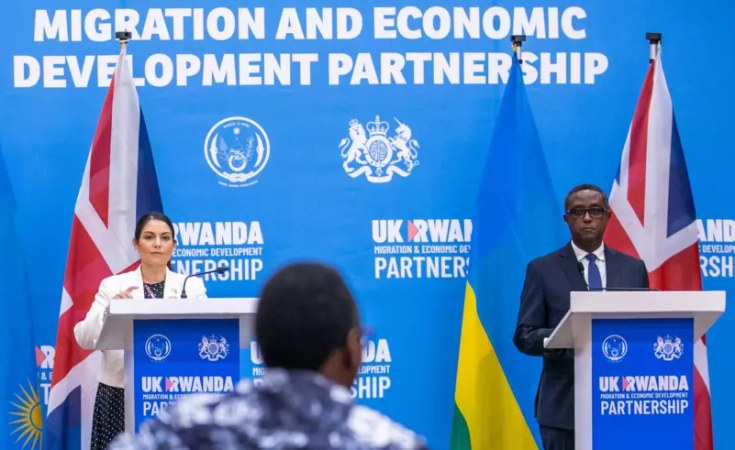People can make objections to the Rwanda-UK Migration and Economic Development Partnership, and they can point out legal complications with it, but they don't have a plan of their own, a member of the UK House of Lords, the second chamber of the UK Parliament, has noted.
He noted that people cannot simply produce a lot of legalisms to shoot down the scheme without making any suggestion whatever of a practical kind that is likely to have an impact on a great national problem.
In a commentary published by The Telegraph, a British daily published in London, on Sunday, July 9, Kenneth Clarke, Baron Clarke of Nottingham, who also served as Home Secretary from 1992 to 1993 and Chancellor of the Exchequer from 1993 to 1997, noted that he has no reputation for being particularly tough on immigration.
He indicated that he has "often advocated the benefits migrants bring to our country" but underscored the fact that "there is no doubt that doing nothing about illegal immigration is not an option."
"Everyone knows that it is a huge problem, and that, if we cannot find a solution, people will die in the Channel in considerable numbers by taking risks as they come here. In the Mediterranean, 2,000 people have died trying to cross it this year alone. We must not allow a similar situation to develop in the Channel," he noted.
Rwanda and the UK on April 14 inked a Migration and Economic Development Partnership, which will see migrants and asylum seekers who are illegally in the UK transferred to Rwanda. The Migration and Economic Development Partnership concerns all the migrants and asylum seekers who arrived in the UK illegally from January 1, 2022.
No one has advanced an alternative
"I am a lawyer and have a huge respect for the law - abiding by the rule of law is one of the most important underlying principles of our constitution - but we cannot simply produce a lot of legalisms to shoot down the Rwanda scheme without making any suggestion whatever of a practical kind that is likely to have an impact on a great national problem, which we share as part of a global issue."
"We do need a solution to this problem and the only one on offer is the extraordinary one put forward by the Government - that we simply cease to entertain illegal immigration and deport to safe places."
Importantly, he noted, in all the debate about the Government's Illegal Migration Bill, no one has advanced an alternative.
"I have listened keenly for an idea of how else we might deal with the mounting issue of irregular migration, but answer has come there none. People can make objections to the Rwanda scheme, they can point out legal complications with it, but they don't have a plan of their own. So, the choice is between doing nothing and Rwanda," he wrote.
Stating that he is not always an admirer of the Government, Clarke also gave "credit to it for the protection that we have offered" to those fleeing persecution.
The UK, he noted, has done well by, among others, admitting a lot of people from Afghanistan, "although we could have made a better job of that."
Rwanda is also hosting a number of people from Afghanistan, as well as the School of Leadership, Afghanistan (SOLA), a girls-only boarding school that was evacuated from Afghanistan following the takeover by the Taliban.
The British lawmaker noted that he cannot be certain that the policy will succeed, observing that it is - after all - the first time this has been tried.
"But we can no longer simply do nothing. We must give the Rwanda scheme a chance to work."
A first of its kind in the world, the Rwanda-UK deal was touted as part of the efforts to promote "the dignity and empowerment of migrants."


